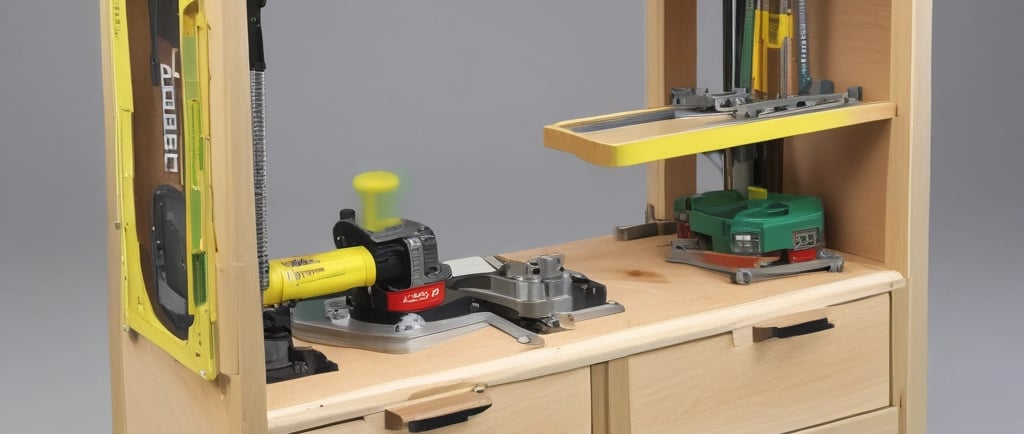Is Ryobi Suitable for Professionals? A Deep Dive
RYOBI GENERAL
11/5/20255 min read


Understanding Ryobi: Brand Overview and Product Range
Founded in 1943, Ryobi has grown from a small company manufacturing die-cast products in Japan into a globally recognized brand synonymous with quality power tools and outdoor equipment. The brand's mission centers around providing innovative tools that meet the needs of both DIY enthusiasts and professional tradespeople. This focus on innovation and user-centric design has allowed Ryobi to carve out a substantial position in the competitive tool market.
Ryobi's core values emphasize accessibility, usability, and durability, appealing to a diverse target audience. With a wide array of products ranging from corded and cordless power tools to outdoor equipment and accessories, Ryobi has established itself as a comprehensive solution for various projects. Their lineup includes drills, saws, lawnmowers, and even battery-operated garden tools, reflecting their commitment to catering to the evolving needs of users.
One of the key strengths of Ryobi is its approach to innovation. The brand continually invests in research and development to ensure their products integrate the latest technology and adhere to market trends. For instance, the introduction of the 18V ONE+ system, which allows users to interchange batteries across a comprehensive suite of tools, showcases Ryobi’s dedication to user convenience and efficiency. This flexibility enables professionals and DIYers alike to invest in a single battery platform while benefitting from a variety of tools for different tasks.
In essence, Ryobi's strategic focus on delivering value through innovation and a diverse product range has secured its reputation among professionals and hobbyists alike. As they adapt their offerings to meet the dynamic demands of the market, Ryobi continues to be a brand that appeals to a broad audience, underscoring its relevance in both the consumer and professional sectors.
Evaluating Ryobi Tools: Performance and Durability
When assessing the suitability of Ryobi tools for professional use, performance and durability are paramount factors. Ryobi has established itself as a player in the power tool market, often appealing to both DIY enthusiasts and professionals. One of the critical aspects of Ryobi tools is their build quality. Ryobi typically employs durable materials such as high-grade plastics, metals, and rubberized grips, aimed at enhancing user comfort and tool longevity. However, some professionals may note that while the overall design supports reliable usage, it might not always stand up to the heavy demands of industrial applications.
Another vital area to explore is the warranty offerings provided by Ryobi. The brand generally offers limited warranties that can vary from one to three years on various products. While these warranties can provide a sense of security, they may not compare favorably with some competitors that offer extended coverage or guarantees on professional-grade tools. Understanding the warranty terms is crucial for professionals who rely on their tools for daily tasks, as any breakdown can result in lost time and financial costs.
When evaluating Ryobi tools, material usage also plays a significant role in determining their suitability. Many users report that Ryobi tools can deliver impressive performance concerning power and efficiency in day-to-day tasks. Nevertheless, when subjected to rigorous work environments, comparisons have revealed that brands like DeWalt or Milwaukee often have a more robust performance profile. User testimonials often highlight the light weight and maneuverability of Ryobi tools; yet, there is some consensus that for intensive tasks requiring increased durability, investing in higher-end brands may be beneficial.
In summary, while Ryobi tools provide a solid option for varied applications, their performance and durability, especially under professional usage, should be carefully considered against other leading brands in the market.
Cost-Effectiveness: Are Ryobi Tools Worth the Investment for Professionals?
When evaluating the cost-effectiveness of Ryobi tools for professional use, it is essential to consider multiple facets such as pricing strategy, features, longevity, and maintenance costs. Ryobi positions itself as an affordable alternative in the power tool market, often catering to the DIY enthusiast and entry-level professionals. However, its pricing strategy invites scrutiny when compared to higher-end brands like DeWalt, Milwaukee, and Bosch, which are traditionally favored by seasoned professionals.
One of the primary advantages of Ryobi tools is their competitive pricing. Typically, Ryobi tools are priced significantly lower, which makes them attractive for professionals on a budget. However, cost should not be the sole determinant of value. When assessing Ryobi against high-end brands, factors such as build quality, durability, and warranty play a crucial role. High-end brands often provide advanced features and superior ergonomics, which can enhance performance and user comfort over extended periods of use. This is particularly relevant for professionals who rely on their tools for daily, rigorous applications.
Longevity is another critical element to contemplate. While Ryobi tools may initially save money, professionals should consider the potential for quicker wear and tear when compared to more robust high-end options. Maintenance costs can also escalate if tools require more frequent repairs or replacements, ultimately affecting overall expenditure. Insights from financial experts suggest that budgeting for quality tools is a prudent long-term strategy. Investing in high-end brands may result in a higher upfront cost but typically translates to lower replacement rates and better performance.
In conclusion, while Ryobi tools offer a cost-effective solution for entry-level and occasional users, professionals might find better value in investing in higher-end brands that provide enhanced durability and features essential for demanding applications. Therefore, the assessment of Ryobi tools should encompass a comprehensive analysis of needs, budget constraints, and long-term usage expectations.
Conclusion: The Final Verdict on Ryobi for Professionals
In assessing whether Ryobi tools are suitable for professional use, it is essential to weigh the strengths and limitations they present. Ryobi has developed a strong reputation in the consumer market, primarily due to its affordability, versatility, and ease of use. Many of its tools are equipped with innovative features that can be advantageous for professionals, such as brushless motors and lithium-ion battery technology, which enhance performance and runtime. Additionally, Ryobi’s expansive range of tools means that customers can find a solution that meets their specific requirements, making it a convenient option for those looking to acquire multiple tools.
However, the durability and performance of Ryobi tools may not always meet the rigorous demands of everyday professional work. Although the tools are designed for a variety of tasks, professionals often require equipment that can withstand heavy usage and provide longer lifespans. In some instances, users have reported that while Ryobi's consumer-grade tools excel at home projects, they may fall short in scenarios that demand continuous, high-intensity operation. This is particularly relevant for trades such as construction or heavy landscaping, where the need for robust and reliable equipment is paramount.
For professionals considering Ryobi tools, it is crucial to evaluate their specific job demands and project requirements. For lighter-duty tasks or smaller projects, Ryobi tools can be a cost-effective choice without compromising too much on performance. Conversely, for heavy-duty applications, it may be advisable to explore more specialized brands that cater specifically to professional trades. Ultimately, Ryobi tools can serve as a viable option in certain scenarios, but professionals should carefully assess their individual needs to determine whether these tools can adequately support their work.
